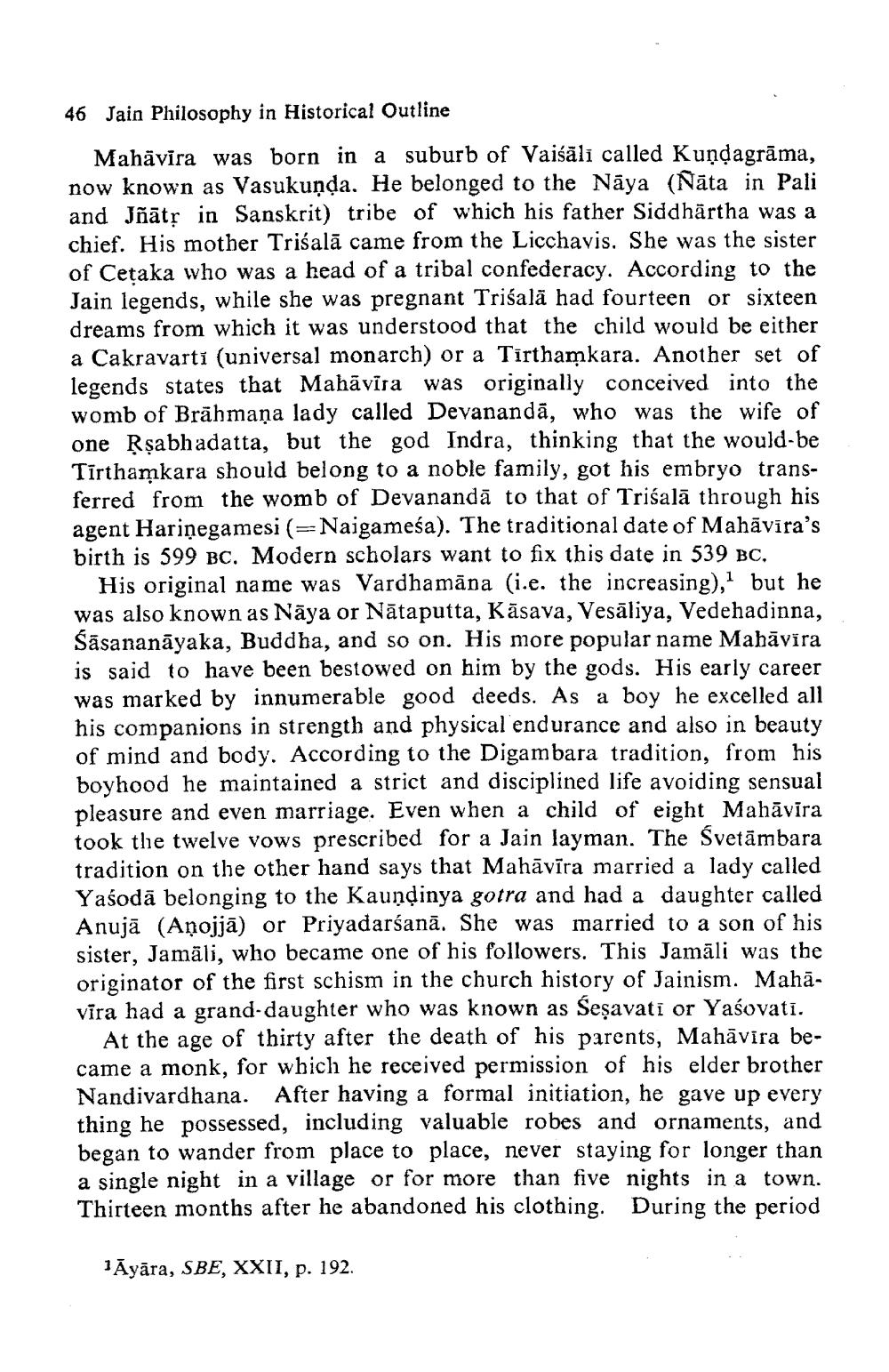________________
46
Jain Philosophy in Historical Outline
Mahāvīra was born in a suburb of Vaiśālī called Kundagrāma, now known as Vasukunda. He belonged to the Nāya (Nāta in Pali and JñātỊ in Sanskrit) tribe of which his father Siddhartha was a chief. His mother Trisalā came from the Licchavis. She was the sister of Cetaka who was a head of a tribal confederacy. According to the Jain legends, while she was pregnant Trišalä had fourteen or sixteen dreams from which it was understood that the child would be either a Cakravarti (universal monarch) or a Tirthamkara. Another set of legends states that Mahāvīra was originally conceived into the womb of Brāhmaṇa lady called Devanandā, who was the wife of one Rşabh adatta, but the god Indra, thinking that the would be Tirthamkara should belong to a noble family, got his embryo transferred from the womb of Devanandā to that of Trišalā through his agent Hariņegamesi (=Naigameśa). The traditional date of Mahāvīra's birth is 599 BC. Modern scholars want to fix this date in 539 BC.
His original name was Vardhamāna (i.e. the increasing), but he was also known as Nāya or Nātaputta, Kāsava, Vesāliya, Vedehadinna, Śāsananāyaka, Buddha, and so on. His more popular name Mahāvīra is said to have been bestowed on him by the gods. His early career was marked by innumerable good deeds. As a boy he excelled all his companions in strength and physical endurance and also in beauty of mind and body. According to the Digambara tradition, from his boyhood he maintained a strict and disciplined life avoiding sensual pleasure and even marriage. Even when a child of eight Mahāvīra took the twelve vows prescribed for a Jain layman. The Svetāmbara tradition on the other hand says that Mahāvīra married a lady called Yaśodā belonging to the Kaundinya gotra and had a daughter called Anujā (Aņojjā) or Priyadarśanā. She was married to a son of his sister, Jamäli, who became one of his followers. This Jamāli was the originator of the first schism in the church history of Jainism. Mahāvīra had a grand-daughter who was known as Sesavati or Yasovati.
At the age of thirty after the death of his parents, Mahāvira became a monk, for which he received permission of his elder brother Nandivardhana. After having a formal initiation, he gave up every thing he possessed, including valuable robes and ornaments, and began to wander from place to place, never staying for longer than a single night in a village or for more than five nights in a town. Thirteen months after he abandoned his clothing. During the period
1Āyāra, SBE, XXII, p. 192.




